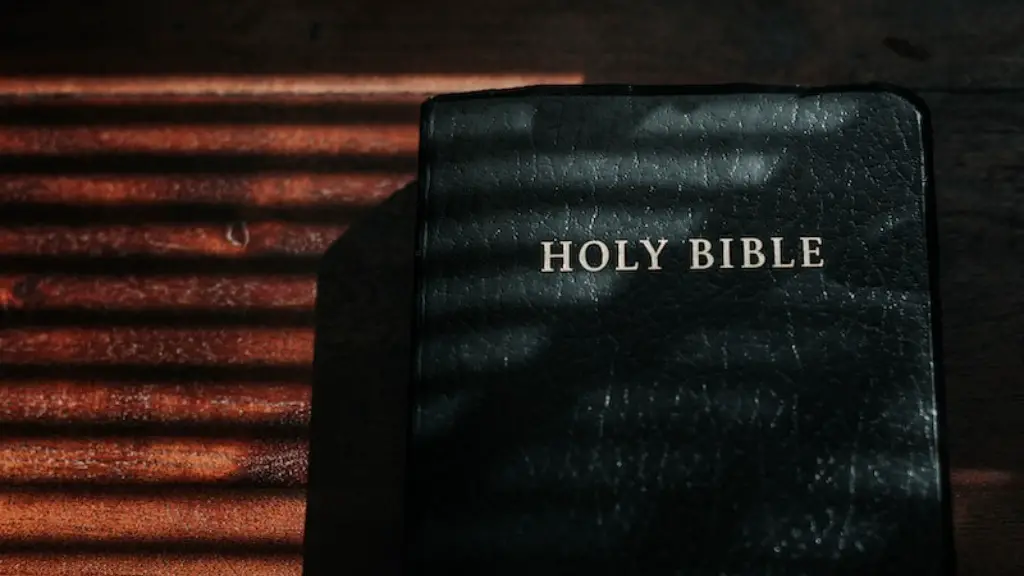Definition Of The Messiah
The term ‘Messiah’ is derived from the Hebrew verb meaning ‘to anoint’. In Jewish religious tradition, the term denotes a special individual chosen by God to perform a mission. In the Bible, the Messiah is the king of Israel whose mission is to bring about the kingdom of God and usher in an everlasting, peaceful kingdom of justice and righteousness.
The figure of the Messiah appears in the Old Testament books of Isaiah, Jeremiah, and Daniel and is referred to in the New Testament Gospel of Matthew as the one who will redeem Israel from its oppressors and restore it to its former glory. In the Christian tradition, the term ‘Messiah’ refers to Jesus of Nazareth and is regarded as the fulfillment of the prophecy in the Old Testament.
Role Of The Messiah
The Messiah plays an important role in the Bible. According to the Old Testament, the Messiah is the anointed one who will lead the people of Israel to freedom and restore the kingdom of God. The New Testament adds to this definition by describing the Messiah as a savior and an example of God’s love and mercy.
In the Christian tradition, the Messiah is seen as the one chosen by God to die on the cross and be resurrected so that all of humanity can be saved from sin. In addition, the Messiah is also believed to be the fulfillment of many of the prophecies made in the Old Testament. In those prophecies, the coming of the Messiah was seen as a sign of the coming of a new age and the fulfillment of God’s promises.
Messiah In Jewish And Christian Beliefs
The concept of the Messiah has been interpreted differently by different religious groups. For example, in Jewish traditions, the Messiah typically refers to an anointed one from the lineage of David who will lead the people of Israel to freedom and restore the kingdom of Israel. In Christianity, the Messiah is identified as Jesus of Nazareth and is seen as the one chosen by God to bring salvation to all of humanity.
In the Islamic faith, the concept of the Messiah is generally interpreted differently. In traditional Islamic teachings, the Messiah is seen more as a messenger of God who will bring a new law. This law will bring justice and peace to the world and will ultimately lead to the Day of Judgment.
Messianic Expectations
Many religious groups have expectations of a Messiah, or deliverer. Jews, Christians, and Muslims all look forward to the time when the Messiah will come and bring peace and justice to the world.
In the Christian tradition, there is an expectation that the Messiah will return to bring about the kingdom of God on earth. This expectation is rooted in the belief that the Messiah’s coming will signal the end of suffering, poverty, and division in the world.
In the Jewish tradition, many Jews look forward to a Messianic age, one in which the world would be at peace and the people of Israel would be able to live in harmony.
In the Islamic tradition, it is believed that serving the cause of the coming of the Messiah is part of the duties of a good Muslim. This expectation is based on the belief that the coming of the Messiah is a sign of the approaching Day of Judgment when the dead will be resurrected.
Messianic Signs
Christians, Jews, and Muslims all believe that certain signs accompany the coming of the Messiah. In the Old Testament, the coming of the Messiah is believed to be accompanied by the coming of a new star in the heavens. This sign is seen as proof that the time of the Messiah has arrived.
In Christian tradition, the signs of the coming of the Messiah include the shutting of all graves, the appearance of a new, brighter star in the sky, and the return of all the dead. In Jewish expectation, some of the Messianic signs include a gathering of the Jewish people from all the nations, and a rebuilding of the Temple in Jerusalem.
In the Islamic faith, it is believed that the coming of the Messiah will be marked by a great gathering of all Muslims and the end of all fighting and warfare.
Conclusion
The concept of the Messiah is an important one in many religions. The Messiah is seen as the one chosen by God to bring peace and justice to the world and ultimately lead to the Day of Judgment. In the Jewish, Christian, and Islamic faiths, the coming of the Messiah is expected to be accompanied by various signs. The expectations surrounding the Messiah vary between religions, but all faiths look forward to the coming of a just and peaceful world.

